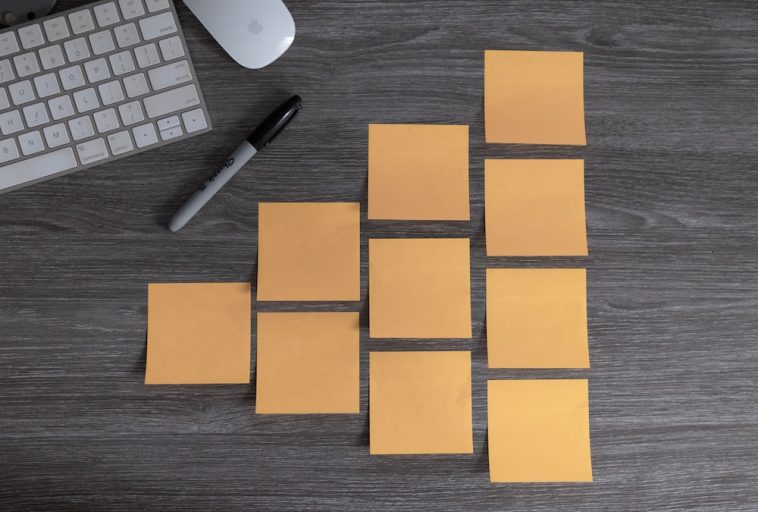Introduction.
Feeling overwhelmed can happen to anyone. Life throws a lot our way—work, family, personal goals, and unexpected challenges. When everything feels like too much, the idea of organizing it all can seem impossible.
But being organized isn’t just about sorting your stuff or checking off to-do lists; it’s a way to regain control, find some mental breathing room, and make life easier.
In this post, I’m going to walk you through some practical, manageable steps to organize your life when you’re feeling swamped.
These aren’t about overhauling everything at once but finding small, effective ways to get back on track.
You’ll learn how to break down tasks, prioritize what matters most, and set up routines that make staying organized easier in the long run.
Whether it’s tackling your overflowing inbox, sorting out your daily tasks, or just figuring out where to start, let’s dive in.
How Do I Organize My Life When You are Overwhelmed?
1. Start with a Brain Dump.
Sometimes, the best way to begin is to get everything out of your head and onto paper. A brain dump can help you see what’s taking up mental space, and it’s surprisingly effective for clarity.
Grab a notebook, or use a notes app on your phone, and list everything that’s on your mind—big or small, urgent or not. Just write it all down.
This exercise might take just a few minutes or a bit longer if you have a lot going on. Don’t worry about organizing the list right away; the goal here is to clear up space in your mind so you can focus on what needs your attention.
2. Prioritize Your List.
Once you have a list of everything on your mind, it’s time to prioritize. Look at each item and ask yourself:
- Is it urgent?
- Will it have a positive impact on my life?
- Can it be done quickly?
Start by grouping tasks into categories like “must-do today,” “can wait a bit,” and “long-term goals.” Try not to worry about finishing everything at once. Instead, focus on a few key items each day. Setting realistic priorities can prevent the burnout that comes from trying to do everything at once.
3. Create a Weekly Plan.
A weekly plan helps you keep an eye on the big picture. Instead of feeling like you have to accomplish everything every single day, you can spread out tasks over the week.
Choose a day—like Sunday or Monday—to map out what you need to get done for the next seven days. Look at your priorities from your brain dump and plug them into your plan.
This can be as simple as a list of three tasks per day. The goal here isn’t to overschedule yourself but to set up a realistic rhythm.
A weekly plan also helps you see progress and adjust as needed, which can make organizing your life feel a lot more manageable.
4. Embrace a Daily Routine.
A solid daily routine can make a world of difference, especially when life feels overwhelming. This doesn’t have to mean scheduling every minute but creating a structure for key parts of your day.
Think about what could help bring more stability and energy into your life—whether it’s a set time for morning coffee, an exercise routine, or 10 minutes in the evening to plan for tomorrow.
Routines take a bit of time to build, but once they’re in place, they help reduce decision fatigue and bring a sense of control. Start small, with one or two habits, and build up from there as these routines become part of your day.
5. Declutter One Area at a Time.
Clutter, whether physical or digital, can add to your sense of overwhelm. But tackling clutter all at once is usually too much. Instead, pick one area—a desk drawer, your inbox, or a corner of the living room—and spend just 10-15 minutes clearing it out.
Small decluttering sessions are less intimidating and can lead to noticeable changes over time. Plus, when you see your space starting to look cleaner, it often gives you a mental boost and encourages you to keep going.
6. Learn to Say “No”
Overwhelm can often come from taking on too many commitments. It’s natural to want to help or be involved, but saying “yes” to too many things can leave you without enough time for yourself.
Practicing saying “no” (or “not right now”) to invitations, extra tasks, or anything that doesn’t serve your priorities can free up valuable time and energy.
Learning to say “no” isn’t selfish; it’s a way to create space for what’s most important in your life. Start small and notice how freeing it can feel.
7. Use Simple Tools to Stay Organized.
You don’t need complex apps or planners to stay organized. A few simple tools can make all the difference. Here are some easy-to-use options:
- Notes app: Perfect for quick lists, reminders, and brain dumps.
- Calendar app: Great for time-blocking and setting reminders for important tasks.
- To-do list: A basic checklist works wonders, especially if you focus on three main tasks each day.
The key is to find tools that work for you and are easy to stick with. You don’t need to spend hours setting them up—just enough to help keep you on track.
8. Take Breaks and Rest.
When you’re overwhelmed, taking breaks can feel like a waste of time. But in reality, resting can help you recharge and stay productive.
Breaks don’t have to be long—even a 5-minute stretch or walk can make a big difference. Set a timer to remind yourself to take these pauses throughout the day.
Taking time to recharge allows you to work better when you come back, and it helps prevent burnout. Remember, rest is as important as getting things done.
9. Find Support.
Sometimes, organizing your life isn’t something you can do alone. Reach out to friends, family, or a mentor to talk things through.
If you’re really struggling, consider a coach or therapist who can provide guidance and structure. Having support can make overwhelming situations feel a lot more manageable.
There’s no shame in asking for help. In fact, it can be one of the most powerful steps you take toward organizing your life.
FAQs
Q: How can I keep up with organizing every day?
Try to build small, simple routines. A few minutes each morning or evening can make a big difference over time. If you miss a day, don’t worry—just get back to it when you can.
Q: What if I feel like I’m not making any progress?
Progress can be slow, but small changes add up. Keep a record of what you accomplish each week, even if it’s just a small list, and celebrate those wins. Over time, you’ll notice the difference.
Q: Are there any specific apps or tools you recommend for staying organized?
A few basic tools, like a notes app, a calendar, and a simple to-do list, are often enough. Experiment to find what you enjoy and will actually use. The goal is to make organizing easy, not add more tasks.
Q: What’s the best way to get back on track after falling behind?
Start with a brain dump to clear your mind. Then, focus on one or two priority tasks and take small steps. Don’t try to catch up all at once; just work steadily and adjust as needed.
Conclusion.
Getting organized when you’re feeling overwhelmed is challenging but very doable. Start small, focus on the most important tasks, and remember to give yourself some grace along the way.
Organization isn’t about perfection; it’s about creating a life that feels balanced and manageable.
What’s the first thing you’ll tackle to start organizing your life?





GIPHY App Key not set. Please check settings